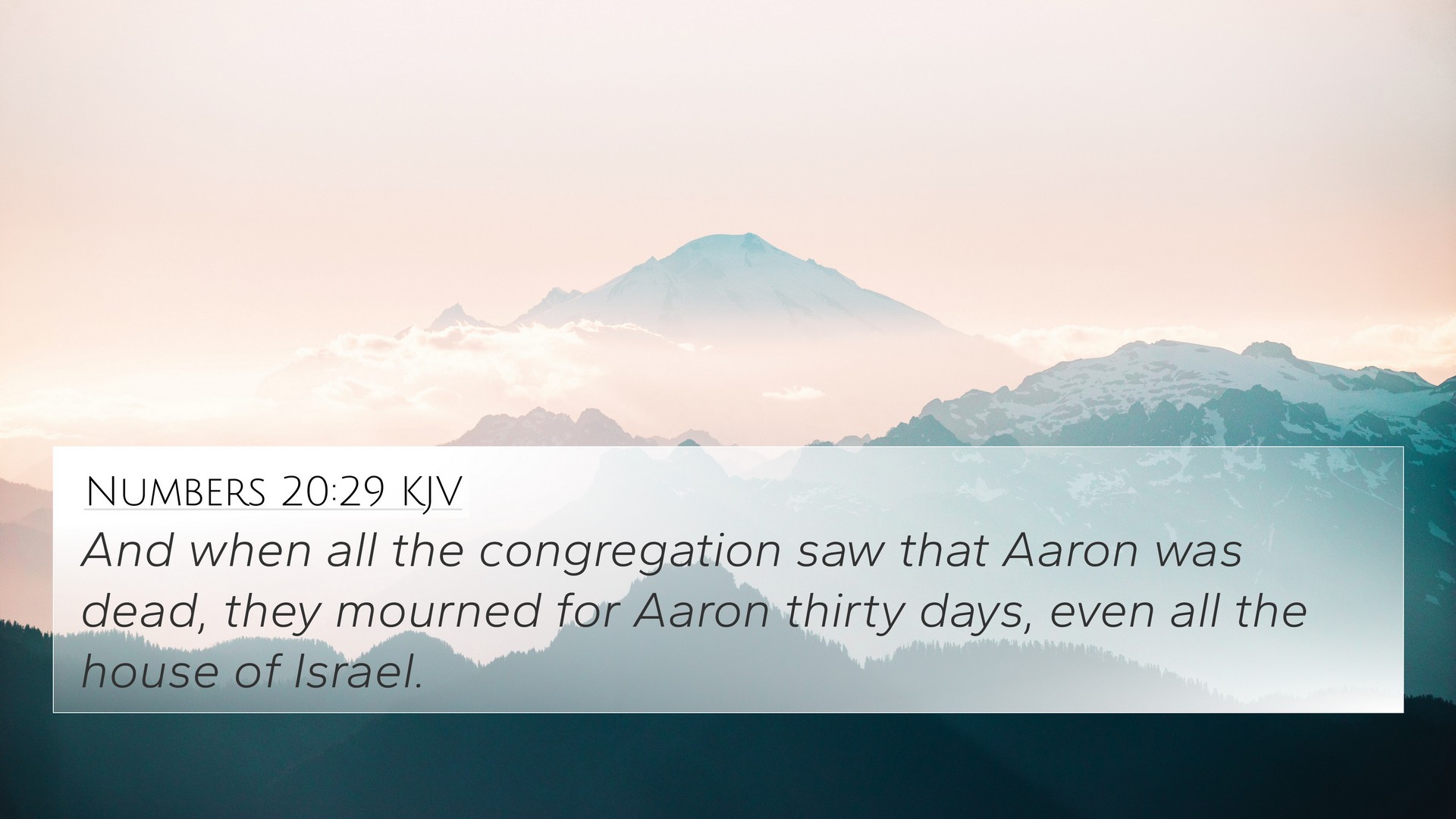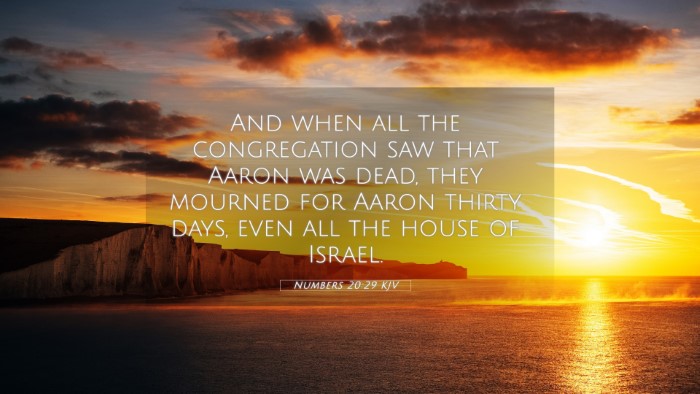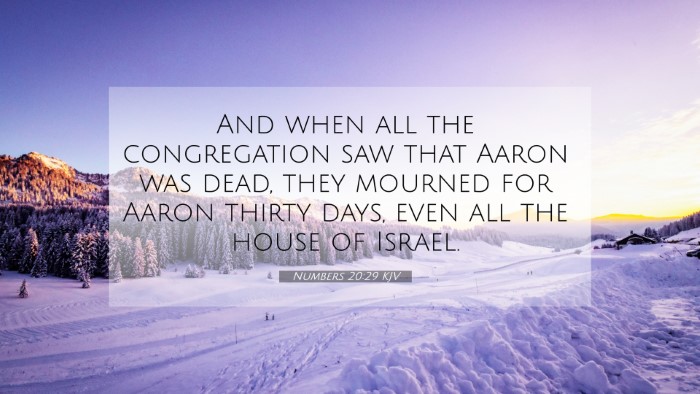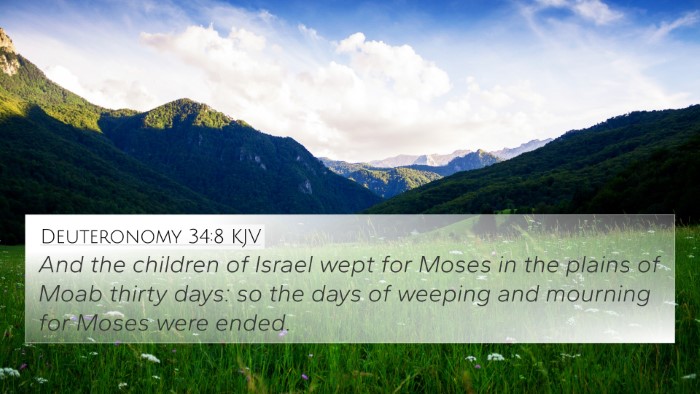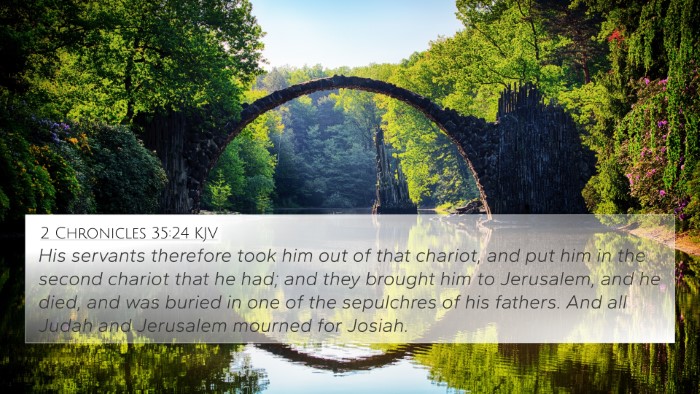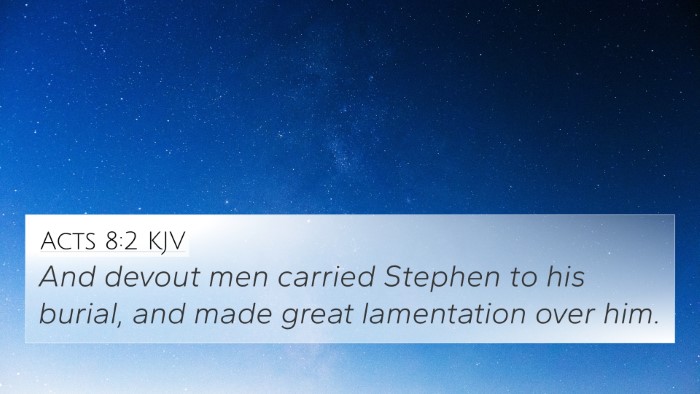Understanding Numbers 20:29
Verse: "And when all the congregation saw that Aaron was dead, they mourned for Aaron thirty days, even all the house of Israel."
Overview
The verse from Numbers 20:29 marks a significant moment in the narrative of the Israelites in the wilderness. The death of Aaron, the high priest, signifies a crucial transition in leadership and the emotional state of the people.
Commentary Insights
This verse has been analyzed by various public domain commentators, offering insights into its meaning and implications:
- Matthew Henry: Henry highlights the mourning period as a representation of the deep respect and love the Israelites had for Aaron. His death marks a significant loss, as he was not only a religious leader but also a trusted companion of Moses. The thirty-day mourning period reflects the cultural practices of Israel regarding bereavement.
- Albert Barnes: Barnes points out that Aaron's death not only affects the community spiritually but also underscores the theme of mortality among leaders. His passing serves as a reminder of human frailty and the need for continual dependence on God. The attention given to mourning signifies the importance of leadership in guiding the people toward God's covenant.
- Adam Clarke: Clarke notes the communal aspect of the mourning, emphasizing that it was not just a private loss but a national tragedy. The text illustrates how Aaron's leadership impacted all of Israel, and the mourning serves as a collective acknowledgment of their loss.
Bible Verse Cross-References
To deepen the understanding of Numbers 20:29, it's essential to consider related scripture passages that provide additional context and thematic connections:
- Exodus 28:1: Discusses Aaron’s appointment as high priest, establishing his role within Israel’s spiritual leadership.
- Leviticus 10:6: Describes the role of mourning in the priesthood, aligning practices and obligations with divine expectations.
- Deuteronomy 34:8: Chronicles the mourning of Moses, drawing parallels between the deaths of these two key figures in Israel's history.
- Hebrews 5:4: Reflects on Aaron’s priestly role and the divine calling involved, which reinforces the significance of his death.
- Luke 6:23: Offers insight into the joy that might follow mourning, indicating deeper emotional layers during periods of loss.
- John 11:35: "Jesus wept" emphasizes the value of compassion and mourning within the life of a believer, paralleling the Israelites' reactions to Aaron's death.
- Matthew 5:4: Blessed are those who mourn implies that mourning is a part of the human experience that can lead to comfort in a spiritual context.
Thematic Bible Verse Connections
This verse encourages readers to explore the broader themes within the Bible, such as leadership, loss, and community mourning. Here are some thematic connections:
- Leadership and Legacy: Aaron’s role as a leader impacts the community profoundly, setting a precedent for future leaders like Joshua.
- The Role of Mourning: The communal mourning illustrates the importance of solidarity in grief, as seen throughout scripture.
- Divine Appointment: The theme of divine selection is prominent, as both Aaron and Moses were chosen for their pivotal roles in Israel's history.
Cross-Referencing Biblical Texts
Engaging with Bible verses that relate to each other strengthens understanding and invites deeper study. Here are ways to explore these connections:
- Utilize a Bible concordance to find related passages and study them in context.
- Employ a Bible cross-reference guide to gain insights into how different scriptures inform one another.
- Engage in a comparative Bible verse analysis to examine themes of leadership and loss across different biblical narratives.
Conclusion
Numbers 20:29 provides a poignant look at the interplay of leadership, community mourning, and the human experience of loss. The insights offered from distinguished commentators serve to enrich our understanding and guide us through a comprehensive study of biblical themes.
